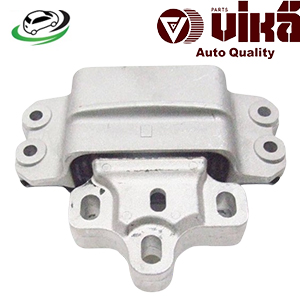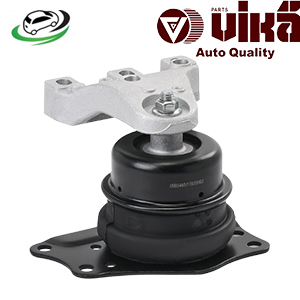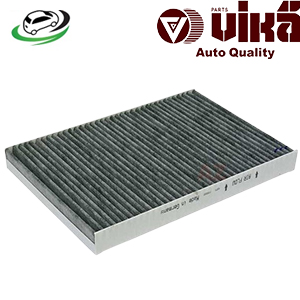-18%
Get AUDI B6 A4/ B6 S4/ B7 A4/ B7 RS4/ B7 S4/ C5 A6/ C5 Allroad/ C5 S6/ RS6 Charcoal Lined Cabin Filter 4B0819439C
A charcoal-lined cabin filter, also known as an activated carbon cabin air filter, is an integral part of a vehicle’s climate control system. Its primary function is to clean the air that enters the cabin through the heating, ventilation, and air conditioning (HVAC) system. What distinguishes a charcoal-lined cabin filter from a standard cabin filter is its ability to not only block particulate matter such as dust and pollen but also absorb harmful gases and odors, providing a healthier and more comfortable driving experience.
In this comprehensive guide, we will explore the function, benefits, types, and maintenance of charcoal-lined cabin filters, delving into how they work and why they are essential for modern vehicles.
Function of a Charcoal-Lined Cabin Filter
The main function of any cabin air filter is to clean the air entering the cabin through the HVAC system. A charcoal-lined cabin filter goes beyond this basic function by filtering out not only particulate matter but also harmful gases and unpleasant odors. The filter is typically made up of several layers, including a layer of activated carbon (charcoal) that is highly porous and has a large surface area, allowing it to trap gases and odors more effectively.
- Particulate Filtration: Like a standard cabin air filter, the charcoal-lined filter traps dust, pollen, dirt, and other airborne particles. These particles can range in size from large visible debris to microscopic allergens, such as mold spores and pollen. By trapping these particles, the filter helps prevent them from entering the vehicle’s cabin, ensuring cleaner air for passengers.
- Gas and Odor Absorption: The activated carbon layer in the filter is designed to absorb volatile organic compounds (VOCs) and harmful gases like nitrogen oxides (NOx), sulfur dioxide (SO2), and ozone (O3). These gases are emitted from vehicles, industrial activities, and other sources of pollution. In addition, the carbon layer effectively eliminates unpleasant odors caused by things like exhaust fumes, smoke, and chemicals.
- Enhanced Air Quality: With its dual filtration mechanism, a charcoal-lined cabin filter greatly improves the quality of the air inside the vehicle. This is particularly important in areas with high pollution levels or during periods of heavy traffic, where drivers and passengers may be exposed to a variety of harmful gases and particulates.
Composition of a Charcoal-Lined Cabin Filter
Charcoal-lined cabin filters consist of several layers, each serving a specific purpose in filtering the air. The most important layers include:
- Primary Particulate Layer: This layer acts as the first line of defense, capturing larger particles such as dust, leaves, and debris.
- Electrostatic Layer: Some filters incorporate an electrostatic layer, which is designed to attract and trap smaller particles such as pollen and mold spores, ensuring more thorough filtration.
- Activated Carbon Layer: This is the defining feature of a charcoal-lined cabin filter. The activated carbon is treated to have a highly porous surface, allowing it to trap and neutralize harmful gases, odors, and chemicals.
- Supporting Layer: Some filters also include an additional layer of synthetic or natural fibers that help support the structure of the filter and improve its longevity.
Benefits of a Charcoal-Lined Cabin Filter
The charcoal-lined cabin filter offers several advantages over standard filters, providing not only cleaner air but also improved comfort and health benefits. Some of the key benefits include:
- Enhanced Filtration: The combination of particulate filtration and gas absorption allows a charcoal-lined filter to provide superior protection compared to traditional filters. It can remove microscopic allergens as well as dangerous gases, making it ideal for urban environments with higher pollution levels.
- Odor Elimination: One of the most noticeable benefits of a charcoal-lined cabin filter is its ability to remove unpleasant odors from the air. Whether it’s exhaust fumes from other vehicles, smoke, or the smell of chemicals, the activated carbon layer effectively neutralizes these odors, providing a fresher cabin environment.
- Improved Respiratory Health: By filtering out airborne pollutants such as pollen, mold spores, and exhaust gases, charcoal-lined cabin filters can help reduce the risk of respiratory issues. This is especially important for people with allergies, asthma, or other respiratory conditions who are sensitive to airborne irritants.
- Protection Against Harmful Gases: In addition to filtering out particulate matter, the activated carbon in the filter absorbs harmful gases that may otherwise enter the vehicle’s cabin. Gases like nitrogen dioxide (NO2), sulfur dioxide (SO2), and ozone (O3) can irritate the respiratory system and contribute to various health problems over time. A charcoal-lined cabin filter minimizes exposure to these harmful gases.
- Comfortable Driving Experience: Cleaner air and the elimination of odors contribute to a more comfortable driving experience. Passengers are less likely to be exposed to strong fumes or allergens, making long drives or sitting in heavy traffic more bearable.
- Longer Lifespan for HVAC System: By filtering out debris and preventing it from entering the HVAC system, a charcoal-lined cabin filter helps protect critical components such as the blower motor, air ducts, and evaporator. This reduces wear and tear on the HVAC system and can extend its lifespan, minimizing the need for expensive repairs.
Types of Charcoal-Lined Cabin Filters
Charcoal-lined cabin filters are available in several types, each catering to different vehicle models and driving conditions. Some of the most common types include:
- OEM Charcoal-Lined Cabin Filters: Original Equipment Manufacturer (OEM) filters are specifically designed for the make and model of the vehicle. These filters meet the vehicle manufacturer’s specifications and offer reliable performance. While they tend to be more expensive than aftermarket options, they provide the best fit and compatibility.
- Aftermarket Charcoal-Lined Cabin Filters: Aftermarket filters are produced by third-party manufacturers and are often available at a lower price than OEM filters. These filters come in various designs and can offer similar or even better performance, depending on the brand and materials used. Some aftermarket filters may have enhanced features, such as multiple layers for added protection.
- High-Performance Charcoal Cabin Filters: For drivers in areas with extreme pollution or those who suffer from severe allergies, high-performance filters offer superior filtration capabilities. These filters may feature multiple layers of filtration, including advanced activated carbon technology for maximum gas absorption and allergen control.
Signs That Your Charcoal-Lined Cabin Filter Needs Replacement
Like any other filter, a charcoal-lined cabin filter will eventually become clogged with debris, reducing its effectiveness. There are several signs that may indicate it’s time to replace your cabin filter:
- Reduced Airflow: If you notice that the airflow from your vehicle’s air vents has weakened, it may be due to a clogged cabin filter. As the filter becomes more saturated with debris, it restricts the flow of air, causing the HVAC system to work harder to circulate air into the cabin.
- Foul Odors: A musty or unpleasant smell coming from the air vents can be a sign that the cabin filter is no longer effectively filtering out odors and pollutants. Over time, trapped debris can begin to decompose, causing foul smells to circulate in the cabin.
- Increased Allergies or Respiratory Issues: If you or your passengers begin to experience increased allergy symptoms or respiratory discomfort while in the vehicle, it could be due to a clogged or ineffective cabin filter. A dirty filter may allow more allergens and pollutants to enter the cabin.
- Dirty or Discolored Filter: During routine vehicle maintenance, check the condition of the cabin filter. If it appears dirty, discolored, or clogged with debris, it’s time for a replacement.
Maintenance and Replacement of Charcoal-Lined Cabin Filters
Replacing a charcoal-lined cabin filter is a relatively simple task that can be done during routine vehicle maintenance. Most manufacturers recommend replacing the cabin filter every 12,000 to 15,000 miles or at least once a year. However, if you frequently drive in dusty or polluted environments, you may need to replace the filter more often.
Steps for Replacing a Charcoal-Lined Cabin Filter:
- Locate the Filter Compartment: The cabin filter is usually located behind the glove compartment, under the dashboard, or in the engine bay. Consult your vehicle’s owner manual to find the exact location.
- Remove the Old Filter: Open the filter compartment and carefully remove the old filter. Take note of the direction of airflow, as you will need to install the new filter in the same orientation.
- Install the New Filter: Insert the new charcoal-lined cabin filter into the compartment, ensuring that it is properly aligned with the airflow direction. Secure the filter compartment cover.
- Test the HVAC System: Once the new filter is installed, test the HVAC system to ensure proper airflow and odor removal.
Conclusion
A charcoal-lined cabin filter is a valuable component of a vehicle’s HVAC system, offering superior protection against both particulate matter and harmful gases. Its ability to absorb unpleasant odors and filter out pollutants makes it an essential feature for drivers who prioritize air quality and comfort. Regular maintenance and timely replacement of the cabin filter ensure that your vehicle continues to provide clean, fresh air for both the driver and passengers. By understanding the function, benefits, and maintenance of a charcoal-lined cabin filter, you can enjoy a healthier and more pleasant driving experience.
Follow us on Facebook for more parts.




Reviews
Clear filtersThere are no reviews yet.